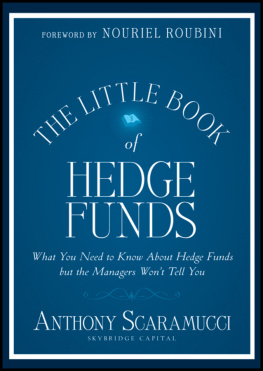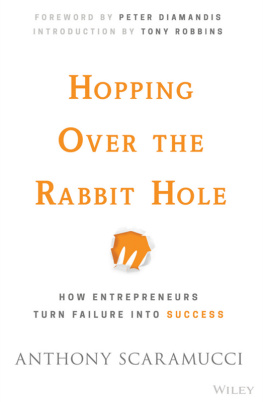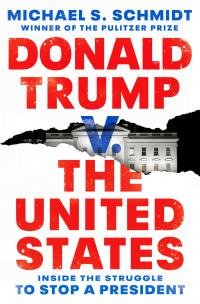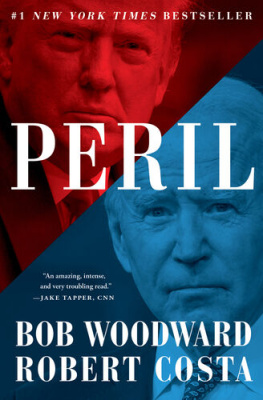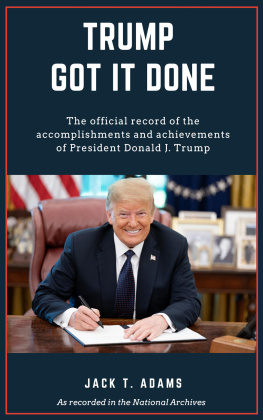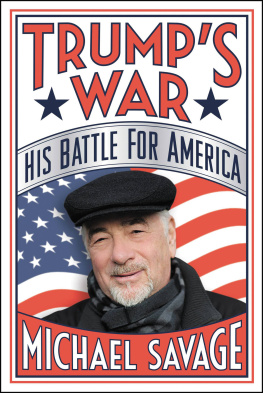Copyright 2018 by Anthony Scaramucci
Cover copyright 2018 by Hachette Book Group, Inc.
Hachette Book Group supports the right to free expression and the value of copyright. The purpose of copyright is to encourage writers and artists to produce the creative works that enrich our culture.
The scanning, uploading, and distribution of this book without permission is a theft of the authors intellectual property. If you would like permission to use material from the book (other than for review purposes), please contact permissions@hbgusa.com. Thank you for your support of the authors rights.
Center Street
Hachette Book Group
1290 Avenue of the Americas, New York, NY 10104
centerstreet.com
twitter.com/centerstreet
First Edition: October 2018
Center Street is a division of Hachette Book Group, Inc. The Center Street name and logo are trademarks of Hachette Book Group, Inc.
The publisher is not responsible for websites (or their content) that are not owned by the publisher.
The Hachette Speakers Bureau provides a wide range of authors for speaking events. To find out more, go to www.HachetteSpeakersBureau.com or call (866) 376-6591.
Library of Congress Cataloging-in-Publication Data has been applied for.
ISBNs: 978-1-5460-7592-9 (hardcover), 978-1-5460-7642-1 (signed edition), 978-1-5460-7640-7 (B&N signed edition), 978-1-5460-8198-2 (ebook)
E3-20180831-JV-NF
For my wife, Deidre, thanks for sticking with me through a rough time. I love you more every day.
T HE DAY AFTER President Trump appointed me to the job as White House communications director, Long Island Newsday, the newspaper Id delivered as a kid, ran the story with my photograph on the front page. My eighty-year-old mother, who still lives with my dad in the house that I grew up in, bought a dozen copies at Jacks Stationery down on Main Street. She might have been more excited than I was. My brother, David, joked that she was going to take down the photos of all her grandchildren and replace them with the framed front page.
Eleven days laterand it was eleven days, not ten as widely reported (Im not gonna let the media steal almost ten percent of my White House experience!)after Id been fired from the job because of an embarrassing public blowout with a reporter from the New Yorker, things werent quite as heartwarming at the Scaramucci residence. The press descended like wasps on my parents house. When I heard, I went over to see how my folks were doing. As I pulled into the driveway, my mother was standing in the front doorway as reporters pointed microphones and cameras at her. My mom had a look on her face that I knew well. It was the same expression she wore when shed say to me, Wait until your father gets home!
Get the f**k off my lawn! she yelled at them.
Ma, I said, thats what got me in trouble in the first place.

M Y BROTHER WAS ONLY half kidding about my mother taking down the photos of her grandchildren. The living room wall of my parents house is made of that old-school 1970s paneling. Its right out of The Brady Bunch. Its also the Anthony Scaramucci Wall of Fame. There are snapshots from high school to law school and everything in between, articles about my first two hedge funds, magazine profiles written well before the Mooch became a household name. Italian mothers can go overboard when it comes to two things: plastic-covered furniture and telling you how great their kids are. (My grandmother, my moms mom, who lived just a block from us in Port Washington, actually did have plastic-covered furniture, as well as plastic-covered rugs in the hallways and plastic-covered lampshades.) Then, in a blink, I went from the eighty-fifth most important person in global finance, according to Worth magazine, to off that list and into the abyss of political purgatory.
Still, modesty aside, Moms homage to me sums up a pretty unlikely life, although one that began in an average way. I was born in a small working-class enclave of Long Island, where my father started out with an hourly wage measuring the sand that was poured into barges and shoveling sand and stone from the ground. My mother stayed home and raised her children. I went to college and then a fancy law school on loans and a little cash from my fathers life insurance policy and savings. I followed my older brother to Wall Street, where I immediately got fired from Goldman Sachs, failed the bar exam twice, and was rehired at Goldman, all in about a year. From there on, however, my life went straight up like a rocket. I passed the bar, started a family and two successful companies, witnessed firsthand 9/11, survived the financial crisis, threw a legendary hedge fund conference called SALT in Las Vegas nine years in a row, twice in Singapore, and once in Tokyo, and had my own finance show on television. After all that, I backed my way into presidential politics the way most people get into drugs.
Along the way, I made friends with a billionaire real estate developer from Manhattan, a man who would go on to become the forty-fifth president of the United States. I was among the first people to learn Donald Trump was running for president (although I didnt believe him at the time), and we ran in the same circles and attended the same charity and political fund-raisers. For a short time, I was even a political antagonist who challenged him to fights on television. Somehow, all that earned me a spot on the political campaign of the century, raising money and stumping for the candidate on TV. It was Donald Trump himself who ultimately gave me my eleven days of fame in the White House; and it was Donald Trump who had to toss me out, like an empty Big Mac box, when the time came.
In one way, this book is the story of my life and my unique friendship with the president, but in the larger view, its also the story of an America that changed dramatically during those years.
Both Donald Trump and I had fathers who thrived in the prosperity of the postwar years and benefited from Americas firm belief and investment in its middle and lower classes. One father dug the sand that made cement, and the other poured the cement into the foundation on which the American Dream was built. The America they grew up in was founded on a solid economic footing; it was unafraid to assert itself on the world stage when necessary. As we, their sons, came along, and the twentieth century wore on, some of that prosperity vanished before our eyes. The trade deals we had struck in the aftermath of the war became worse and worse as they were renegotiated by elitist politicians out of touch with the American worker, and our tax system fell far out of balance with what was sensible and necessary. The American government then laid the groundwork for a financial collapse and blamed its most influential financial institutions when that collapse happened. Our leaders became feckless and unable to stand up for the United States of America. The aspirational working classhardworking men and women who, like Fred Trump and Alexander Scaramucci, had struggled to achieve successsuffered a sharp decline while career politicians in Washington lined their pockets and held Congress in gridlock. With the coming of the internet, vast, powerful companies run by tech oligarchs controlled the content we read and the things we bought. Though these companies professed to be progressive, their actions were actually intrusive, racist, and limiting.
The lives of American citizens declined too, and when those people looked for help, no one was listening. At least not until the most improbable of all candidates came riding out of New York to champion their cause.


